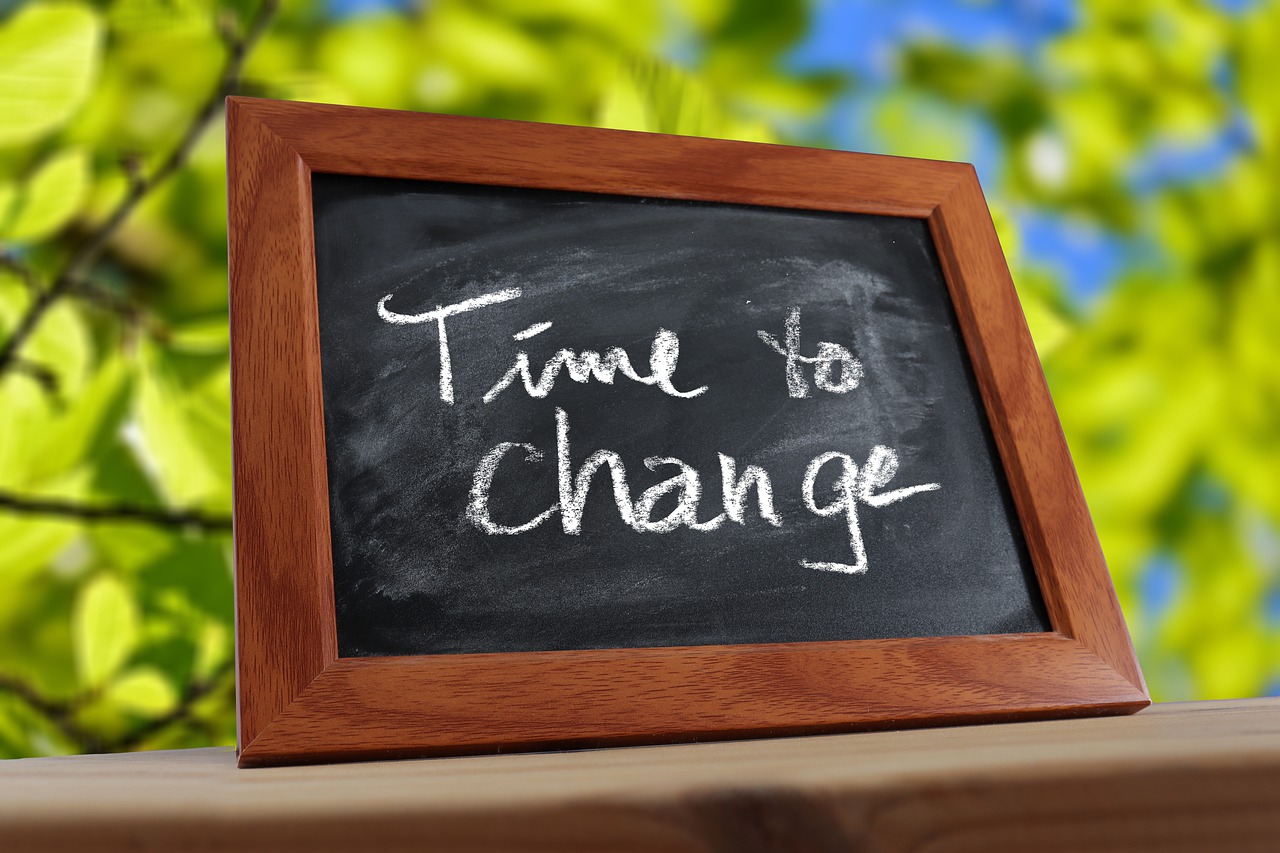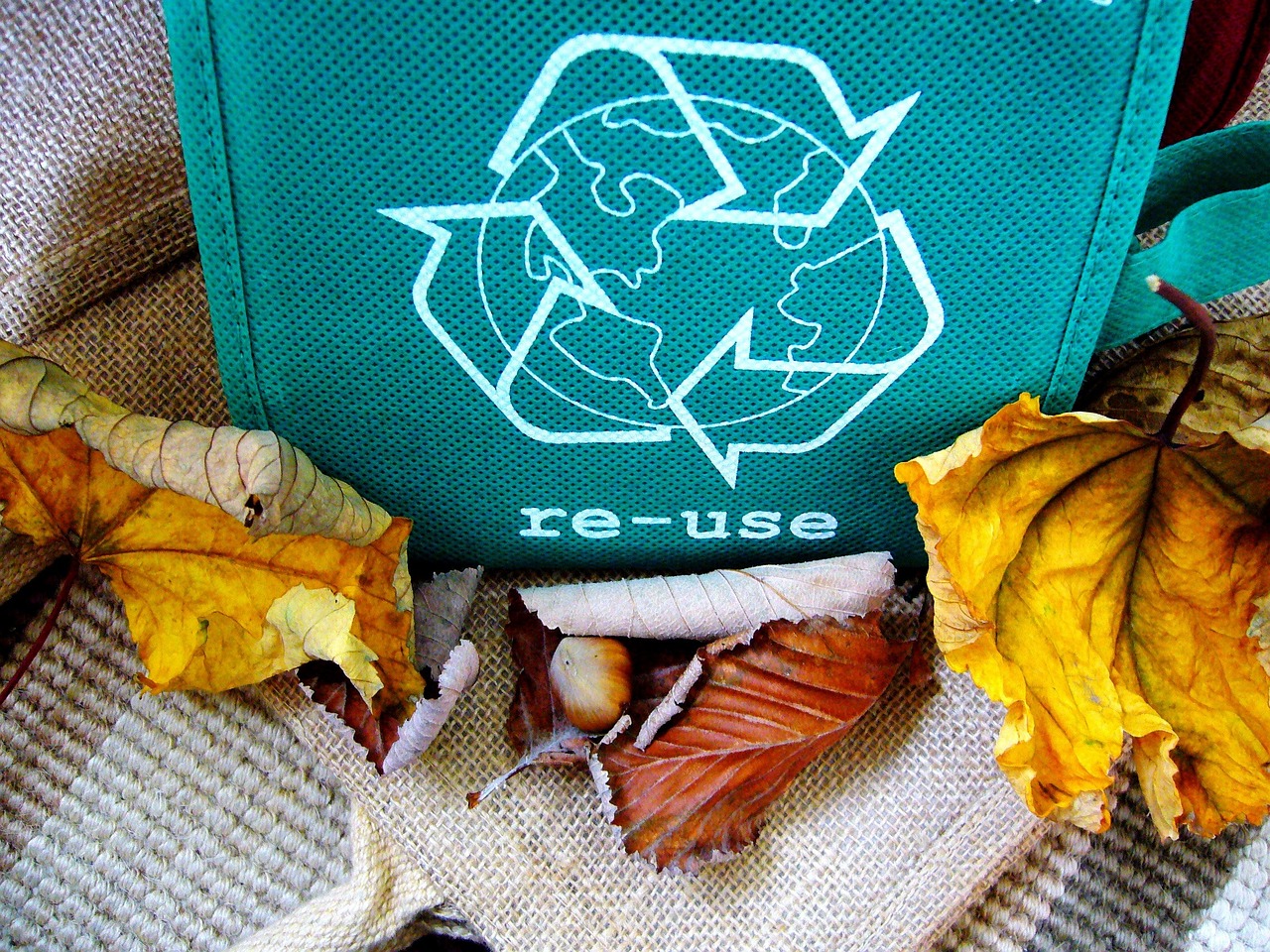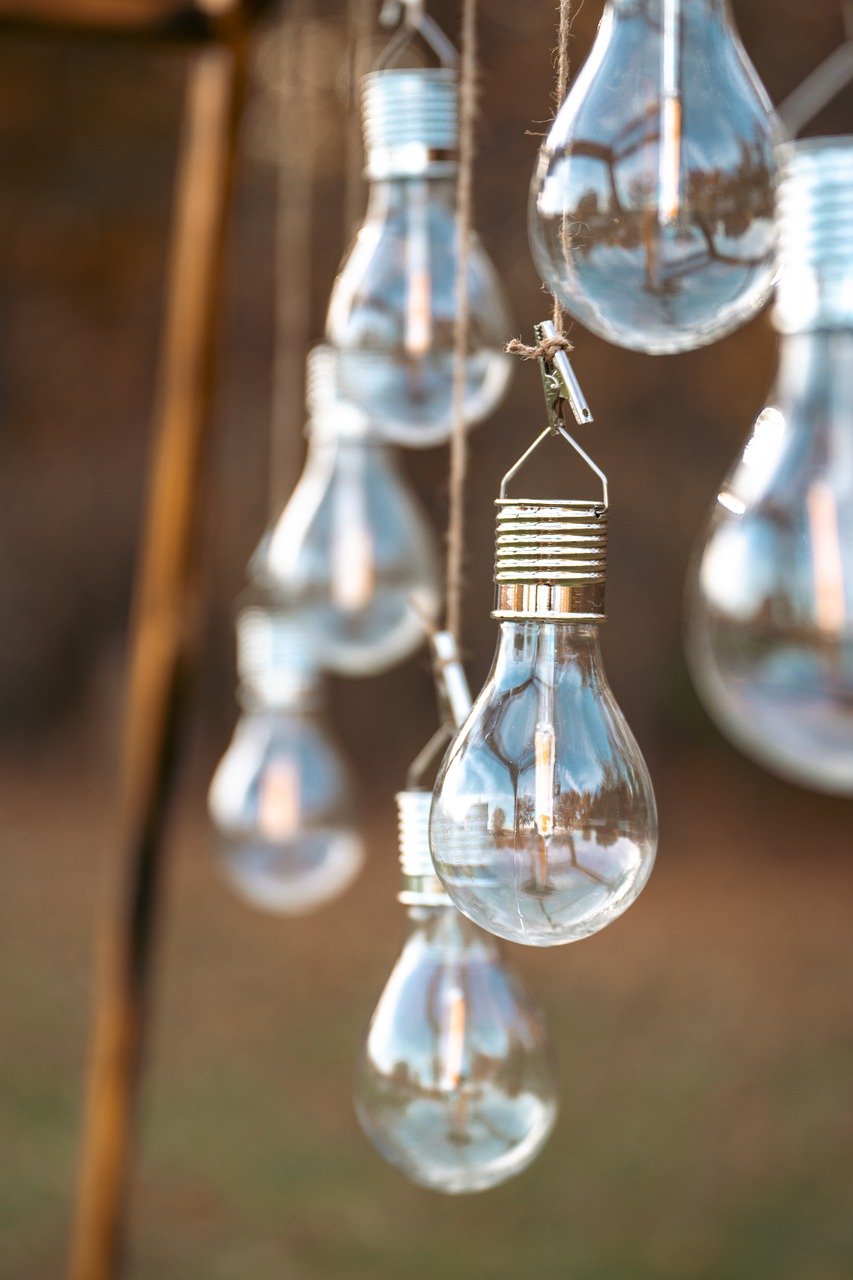In a world where sustainability is becoming increasingly important, eco-friendly decluttering is a concept that aligns perfectly with our desire to lead more environmentally conscious lives. As we strive to reduce our carbon footprint and live a more sustainable lifestyle, our approach to decluttering and disposing of unwanted items must also evolve. In this blog, we will explore the concept of eco-friendly decluttering, offering guidance on sustainable practices for a clean slate. We will also introduce you to some Amazon product ideas that can help you in your eco-friendly decluttering journey.
**As an Amazon Associate, I earn from qualifying purchases.** (Any word(s) that are bold and turn green when you hover over them are product links.)
The Need for Decluttering
Our lives are filled with stuff—clothes, gadgets, furniture, and countless other possessions. Over time, these items accumulate and often end up cluttering our living spaces. Decluttering can be a liberating experience, but the way we do it matters more now than ever. Traditional decluttering methods often involve tossing unwanted items into the trash, contributing to landfills and environmental degradation. Eco-friendly decluttering, on the other hand, focuses on responsible disposal and conscious consumption.
Reducing Landfill Waste
One of the most significant benefits of eco-friendly decluttering is the reduction of landfill waste. Landfills are overflowing with items that could have been reused, recycled, or repurposed. By adopting sustainable practices, we can minimize the impact of our discarded belongings on the environment.
Minimizing Resource Consumption
Eco-friendly decluttering is also about minimizing the resources required to produce new items. When we choose to declutter sustainably, we reduce the demand for new products, conserving energy and raw materials in the process.
Supporting a Circular Economy
The circular economy is a sustainable alternative to the linear, take-make-dispose model. It promotes the continuous use and recycling of resources, reducing waste and environmental impact. Eco-friendly decluttering aligns with the principles of a circular economy by prolonging the life of products and materials.
Sustainable Practices for Eco-Friendly Decluttering
Now that we understand the importance of eco-friendly decluttering, let’s delve deeper into practical tips and methods for achieving a clean slate while minimizing your environmental impact. Eco-friendly decluttering is not just about getting rid of things; it’s about doing so in a way that aligns with your sustainability goals.
Evaluate Your Possessions
The first step in eco-friendly decluttering is to take a close look at your possessions. It’s an opportunity to declutter mindfully and reduce waste. Before you decide to part with anything, consider the following:
Repurpose:
Can the item be repurposed for another use? For example, old jars can become stylish storage containers, or a wooden ladder could transform into a bookshelf.

Evaluate Your Possessions
The first step in eco-friendly decluttering is to take a close look at your possessions. It’s an opportunity to declutter mindfully and reduce waste. Before you decide to part with anything, consider the following:
Repurpose:
Can the item be repurposed for another use? For example, old jars can become stylish storage containers, or a wooden ladder could transform into a bookshelf.
Repair:
Is the item in need of minor repairs? Sometimes, a simple fix can extend an item’s life. Repairing a broken chair or a ripped piece of clothing is often more eco-friendly than replacing it.
Donate:
If you have items in good condition but no longer need, consider donating them to charities or local community organizations. These organizations can provide your items to those in need or resell them to raise funds for a good cause.
Consider using a smart home inventory system to keep track of your possessions. It allows you to easily categorize and manage your belongings, making it simpler to assess and decide which items to keep or part with.
Donate or Sell Unwanted Items
Items that you no longer need may be valuable to someone else. Instead of throwing them away, consider donating to charities or selling them through online platforms. This not only benefits others but also extends the life of the items and reduces the need for new production.
If you plan to sell items online, use eco-friendly shipping and packaging supplies. This not only reduces your carbon footprint but also reflects your commitment to sustainability. Look for recyclable and biodegradable packaging materials.
Recycle Responsibly
Recycling is a fundamental part of eco-friendly decluttering, and it’s essential to ensure your recyclables are processed correctly. Sort your waste into categories like paper, plastic, glass, and electronics. Follow local recycling guidelines to ensure your items are properly recycled. Always clean and rinse recyclables to prevent contamination.
Invest in durable recycling bins to facilitate proper waste sorting. Additionally, consider using compostable bags for organic waste to make recycling and composting more efficient. These bags can break down naturally, reducing plastic waste.

Repurpose and Upcycle
Get creative with your unwanted items. Repurposing and upcycling are excellent ways to reduce waste and add a unique touch to your living space. Here are some ideas for repurposing and upcycling:
Furniture:
Old furniture can be revamped with a fresh coat of paint or by changing the hardware. Consider turning an old wooden door into a rustic dining table.
Clothing:
Turn old jeans into shorts, or transform a tattered sweater into a cozy blanket.
Accessories:
Convert vintage suitcases into stylish shelves or use old windows to create a decorative room divider. Look for DIY upcycling kits and tools to help you transform your old items into something new and exciting. These kits typically come with detailed instructions and materials to get you started.
Dispose of Hazardous Waste Properly
Some items, such as electronics and chemicals, can be hazardous to the environment if not disposed of correctly. Research your local disposal options for these materials, which may include designated drop-off locations. Here are a few examples of hazardous waste:
Electronics:
Old electronics often contain hazardous materials. Look for local electronic recycling programs or drop-off locations that can handle them safely.
Chemicals:
Dispose of chemicals like paint, batteries, and cleaning products following your local guidelines, which may include special collection days or locations. If you have old electronic gadgets to dispose of, look for eco-friendly electronic disposal kits. These kits come with proper containers and instructions for safely getting rid of electronic waste.
Support Sustainable Brands
When decluttering leads you to make new purchases, consider supporting brands that prioritize sustainability. Look for products made from eco-friendly materials, and choose items that have a long lifespan to reduce future waste. Some considerations when shopping for sustainable products:
Materials:
Opt for items made from sustainable materials like bamboo, reclaimed wood, organic cotton, or recycled materials.
Durability:
Choose products that are built to last. Quality products may have a higher upfront cost but can save you money and resources in the long run.
Certifications:
Look for products with certifications like Fair Trade, USDA Organic, or ENERGY STAR to ensure they meet certain environmental and ethical standards. Look for eco-friendly storage containers, shelves, and furniture made from sustainable materials.
Minimize Impulse Buying
Prevent future clutter by adopting a conscious consumer mindset. Impulse buying often leads to accumulating items that you don’t truly need or cherish. To minimize impulse buying:
Make a List:
Create a shopping list and stick to it when you shop, whether in-store or online. This will help you avoid unnecessary purchases.
Wait Before Buying:
When you’re tempted to buy something on a whim, give it some time. Delay the purchase for a few days to see if you still want or need it.
Quality Over Quantity:
Prioritize quality over quantity. Invest in well-made products that will last longer and serve you better. Use sustainable shopping apps and guides to make informed decisions and support eco-friendly brands. These apps can help you make ethical and eco-conscious choices when shopping for new items.
Product Ideas for Eco-Friendly Decluttering
As you embark on your eco-friendly decluttering journey, here are some product ideas to help you on your path to a cleaner, more eco-friendly life.
Reusable Storage Containers
Invest in a set of high-quality, reusable storage containers for your kitchen and pantry. These containers are ideal for reducing food waste, as they keep your ingredients fresh for longer.
Sustainable Cleaning Supplies
Replace traditional cleaning products with eco-friendly, non-toxic options. These products are effective at keeping your home clean without harmful chemicals.

Energy-Efficient Lighting
Switch to LED or energy-efficient light bulbs to reduce your electricity consumption and lower your energy bills.
Smart Thermostats
Install a smart thermostat to control your home’s temperature efficiently, reducing energy waste and lowering your carbon footprint.
Reusable Shopping Bags
Carry reusable shopping bags with you to reduce plastic waste when you shop for groceries or other items.
Eco-Friendly Furniture
When looking to update your home decor, consider sustainable furniture made from reclaimed or eco-friendly materials.
Solar-Powered Gadgets
Utilize solar-powered gadgets for your outdoor and home needs, reducing your reliance on non-renewable energy sources.
Eco-Friendly Garden Supplies
If you have a garden or outdoor space, consider using eco-friendly gardening supplies, like compostable pots and organic fertilizers.
Water-Saving Devices
Install water-saving devices in your home, such as low-flow showerheads and faucet aerators, to reduce water consumption.
Sustainable Office Supplies
For those working from home, opt for eco-friendly office supplies like recycled paper and refillable ink cartridges.
The Wellness Benefits of Eco-Friendly Decluttering
Eco-friendly decluttering not only promotes sustainability but also offers a range of wellness benefits for both your physical and mental health. As you embark on your journey to declutter your life while reducing your environmental impact, you’ll find that this process can positively impact your overall well-being.

Reduced Stress and Anxiety
Cluttered and disorganized spaces can contribute to stress and anxiety. When you declutter and create an organized, clean environment, you’re more likely to feel relaxed and at ease. An eco-friendly approach to decluttering enhances this effect by aligning your living space with your values, giving you a sense of accomplishment and control over your surroundings.
Improved Air Quality
Over time, clutter can trap dust, allergens, and even harmful toxins, reducing the air quality in your home. Eco-friendly decluttering involves thorough cleaning and allows for better air circulation, leading to a healthier indoor environment. This can alleviate respiratory issues and allergies.
Productivity
A clutter-free workspace promotes productivity. Whether you’re working from home or managing household tasks, an organized and eco-friendly environment allows you to focus better and complete tasks more efficiently. This can result in a more balanced work-life schedule and reduced stress.
Increased Creativity
A clean and organized space can stimulate your creativity. As you declutter and let go of the excess, you create a canvas for fresh ideas and inspiration. An eco-friendly approach, which often involves upcycling and repurposing, encourages creative thinking and a more mindful approach to design and decor.
Better Sleep Quality
A clutter-free bedroom can lead to better sleep quality. A serene and organized space promotes relaxation, making it easier to unwind and get a good night’s rest. Your eco-friendly approach to decluttering ensures that the materials and products in your bedroom are free from harmful chemicals, contributing to a healthier sleep environment.
Reduced Decision Fatigue
An eco-friendly and minimalist lifestyle reduces decision fatigue. By simplifying your possessions and focusing on what truly matters, you spend less time making decisions about what to wear, what to eat, or what to use. This streamlines your daily routines and frees up mental energy for more important choices.
Increased Mindfulness
Eco-friendly decluttering encourages mindfulness in your daily life. You become more conscious of your consumption habits, waste, and the impact of your choices on the environment. This heightened awareness can extend to other aspects of your life, such as diet, transportation, and resource conservation.
Closer Connection to Nature
As you declutter and make eco-conscious choices, you become more connected to the natural world. This newfound appreciation for the environment can lead to a desire to spend more time outdoors, explore green spaces, and engage in activities that promote sustainability and conservation.
Sense of Accomplishment
Completing an eco-friendly decluttering project brings a sense of accomplishment. The knowledge that you’ve made a positive impact on the environment, minimized waste, and created a healthier living space can boost your self-esteem and provide a sense of fulfillment.
Embrace Eco-Friendly Decluttering for a Sustainable and Well-Balanced Life
Eco-friendly decluttering is more than just tidying up; it’s a conscious effort to reduce waste and make responsible choices in our daily lives. By evaluating your possessions, donating or selling unwanted items, recycling responsibly, repurposing, and supporting sustainable brands, you can significantly reduce your environmental impact while achieving a clean slate.
As you take steps towards an eco-friendly lifestyle, remember that there are a wide range of products that can help you in your journey towards a cleaner, more sustainable future. By making thoughtful choices and using these recommended products, you can transform your living space into an eco-friendly haven, contribute to a greener planet, and inspire others to follow your lead. It’s time to embrace the power of eco-friendly decluttering and embark on a journey towards a more sustainable, clutter-free life.
Head to the Blogs page to read more about planning, decluttering and organizing!
Eco-Friendly Decluttering
Subscribe to updates and our newsletter!
Contact Us
contact@neatandcozyhouse.com
By submitting your email address, you hereby consent to receive weekly post emails and monthly newsletters from The Neat and Cozy House. We will use your email address solely for the purpose of sending you these updates, and we assure you that your information will be kept confidential.
You have the right to unsubscribe at any time by clicking the “Unsubscribe” link in the footer of our emails. Your decision to unsubscribe will take effect immediately, and you will no longer receive our weekly post emails and monthly newsletters.
We value and respect your privacy. For more information on how we handle your data, please refer to our Privacy Policy.
Thank you for subscribing!

